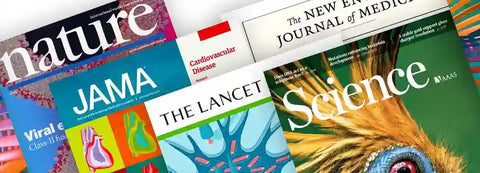Nurturing Your Conference Paper for a Long and Successful Life
Although the average conference paper is presented in less than half an hour, its ideal life is much longer. From initial conception to final publication, this sort of long and successful life can be promoted by the author who nurtures his or her presentation to reach its full potential.
The life of a conference presentation usually begins when a call for papers is answered with a proposal of the work that a scholar or professional would like to share with colleagues. In some cases the entire paper will need to be submitted to the conference organiser(s) far in advance so that decisions can be made about which papers to include and how the sessions will be structured. Whether you need to send a short synopsis, a finished presentation or both, the submission will be equivalent to submitting an article to an academic or scientific journal, with the chances of it being accepted much increased if your writing is clear and engaging, your grammar, spelling and punctuation are correct, and your arguments are logical and carefully organised. Even the less formal messages and letters you exchange with the conference organiser(s) should observe these scholarly qualities if you wish your work to be taken seriously and become part of the proceedings.
Once your paper has been accepted and scheduled into the conference, you should do everything you possibly can to present the work you have promised. Emergencies and other extreme situations beyond your control are a reality at times, but not showing up to give your presentation at a scholarly or professional conference is inadvisable. Conferences provide an excellent venue for sharing your work with a sophisticated and knowledgeable audience, engaging interested listeners in illuminating dialogue and forming vital connections with important members of your scholarly community. It is not a time to appear irresponsible or unprepared, to use awkward grammar or unclear language, or to experience the sense of self-doubt that arises when you suspect such errors occur in the text you are reading aloud. In addition, if that prestigious senior scientist or business guru whose attention you had hoped to attract happens to ask you for a copy of your paper, you need to be able to comply at once with work that reflects well on you. Your paper should therefore be prepared, proofread and polished before the conference begins, and you should ensure that you are equally well prepared to present it.
While you are attending the conference, you may be able to meet the organiser(s). If so, be sure to extend your personal thanks for being included among the participants and take the opportunity to ask if there is a plan to publish all or some of the papers. If the answer is affirmative, express your wishes to have your presentation included in the publication, and if you are fortunate enough to have your paper chosen for the collection, be sure to be enthusiastic and efficient in observing all the guidelines established by the volume’s editor(s) or publisher as you add formal notes, citations and references. In some cases you will also be able to make revisions in response to feedback you received at the conference and incorporate ideas from the work presented by other participants. If so, seize the opportunity, remembering that such developments and cross references highlight the benefits of sharing knowledge in a conference setting.
Why Our Editing and Proofreading Services?
At Proof-Reading-Service.com we offer the highest quality journal article editing, dissertation proofreading and online proofreading services via our large and extremely dedicated team of academic and scientific professionals. All of our proofreaders are native speakers of English who have earned their own postgraduate degrees, and their areas of specialisation cover such a wide range of disciplines that we are able to help our international clientele with research editing to improve and perfect all kinds of academic manuscripts for successful publication. Many of the carefully trained members of our manuscript editing and proofreading team work predominantly on articles intended for publication in scholarly journals, applying painstaking journal editing standards to ensure that the references and formatting used in each paper are in conformity with the journal’s instructions for authors and to correct any grammar, spelling, punctuation or simple typing errors. In this way, we enable our clients to report their research in the clear and accurate ways required to impress acquisitions proofreaders and achieve publication.
Our scientific proofreading services for the authors of a wide variety of scientific journal papers are especially popular, but we also offer manuscript proofreading services and have the experience and expertise to proofread and edit manuscripts in all scholarly disciplines, as well as beyond them. We have team members who specialise in medical proofreading services, and some of our experts dedicate their time exclusively to dissertation proofreading and manuscript proofreading, offering academics the opportunity to improve their use of formatting and language through the most exacting PhD thesis editing and journal article proofreading practices. Whether you are preparing a conference paper for presentation, polishing a progress report to share with colleagues, or facing the daunting task of editing and perfecting any kind of scholarly document for publication, a qualified member of our professional team can provide invaluable assistance and give you greater confidence in your written work.
If you are in the process of preparing an article for an academic or scientific journal, or planning one for the near future, you may well be interested in a new book, Guide to Journal Publication, which is available on our Tips and Advice on Publishing Research in Journals website.








